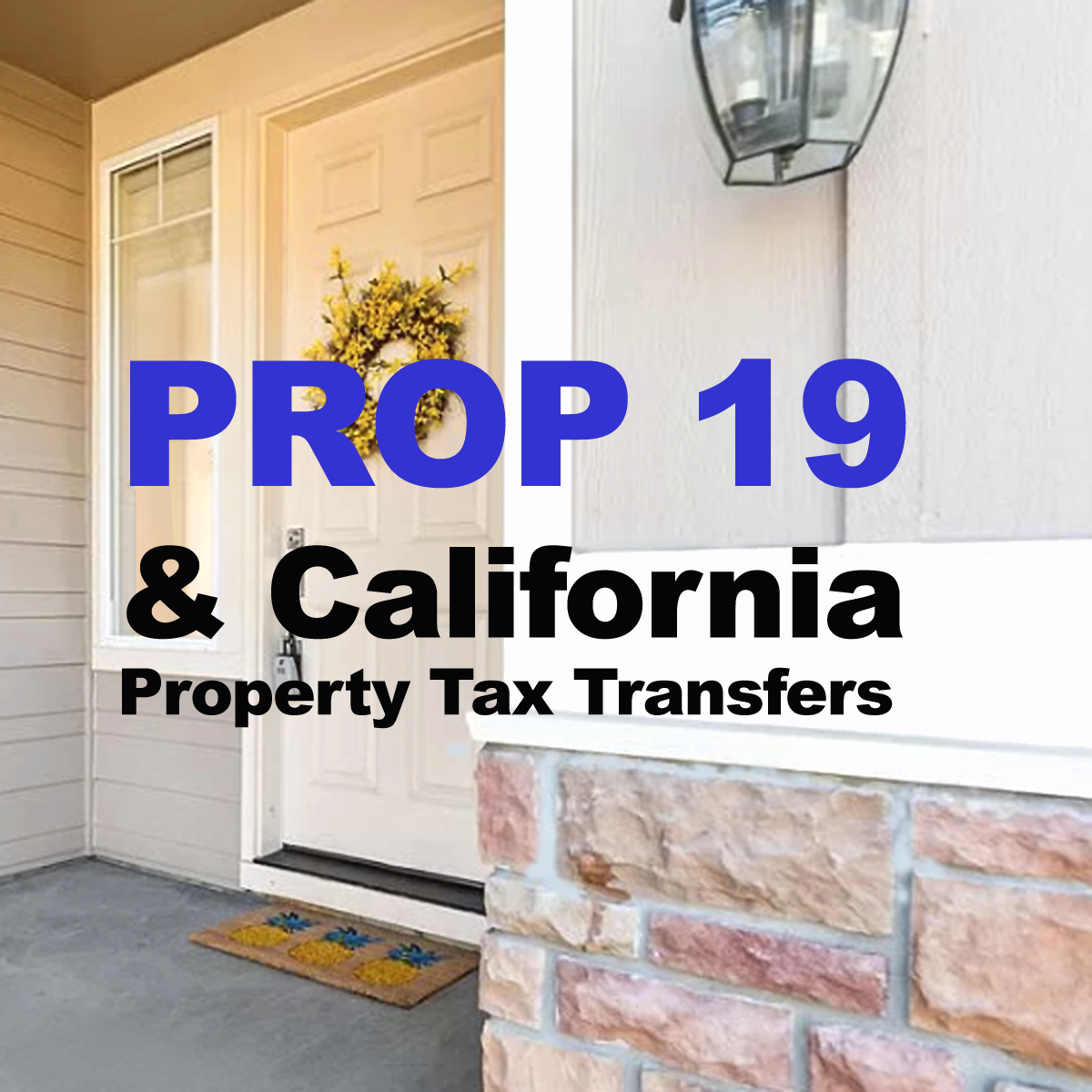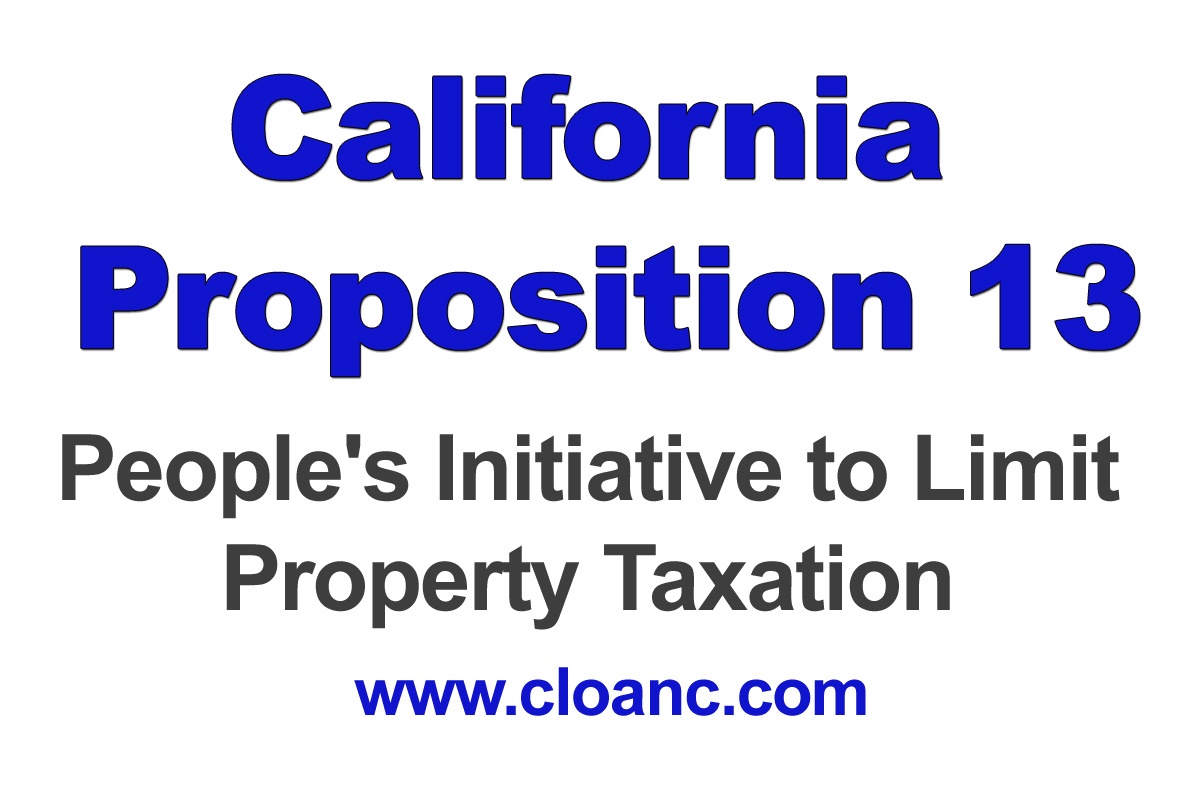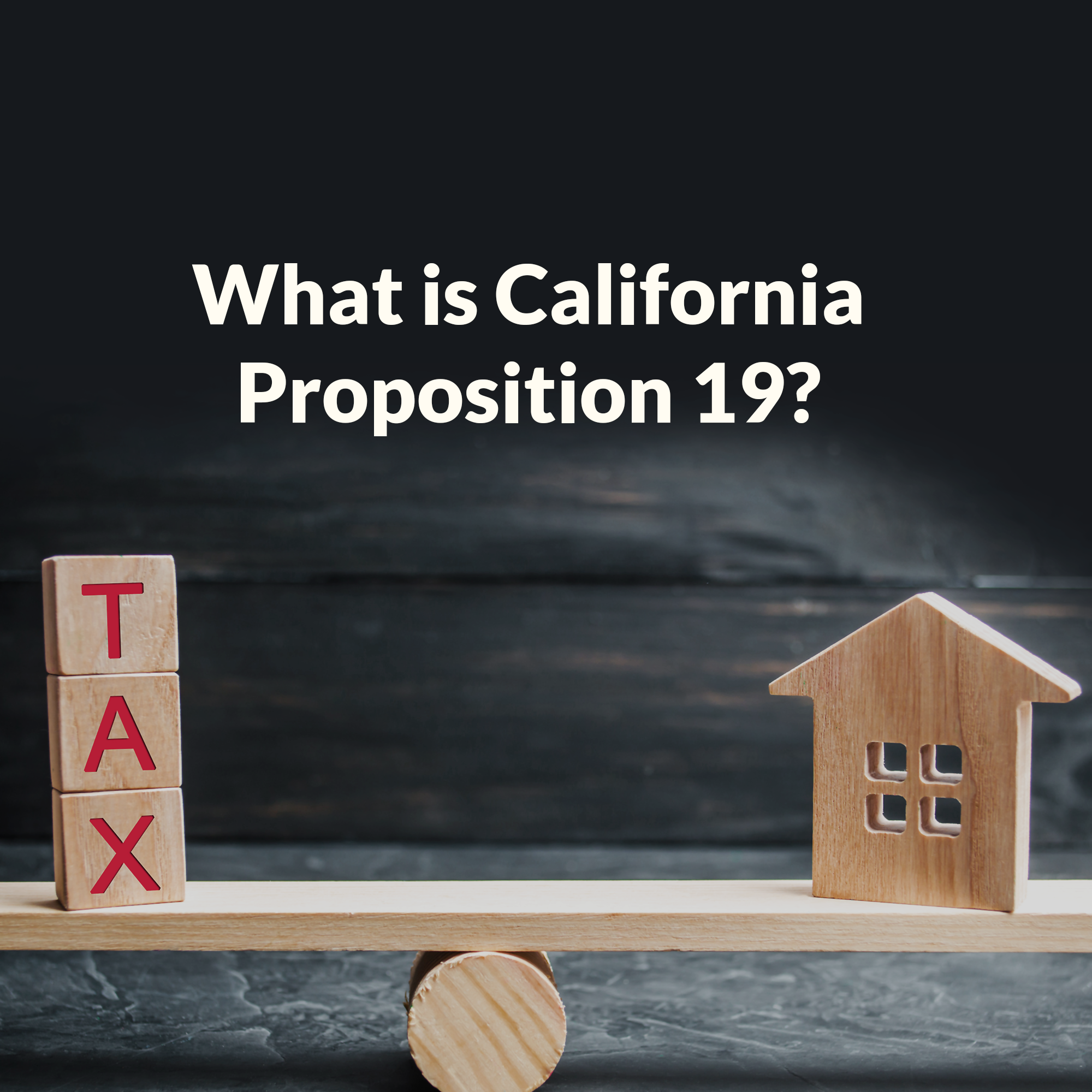
Information of California Proposition 19 and Property Tax Transfers.
California Proposition 19
So what is California Proposition 19? Proposition 19 also known as the Home Protection for Seniors, Severely Disabled, Families and Victims of Wildfire or Natural Disasters Act, or Prop 19 for short is an amendment to the California Constitution that impacts state property tax laws and regulations. On November 3, 2020, California voters approved Proposition 19. In simplified terms Prop 19 is a Constitutional Amendment that imposes new limits on property tax benefits for inherited family property. Under Proposition 19, a child or children may keep the lower property tax base of the parent(s) but only if the property is the principal residence of the parent(s) and the child or children make it their principal residence within one year of receiving ownership. Additionally, Prop 19 allows homeowners who are over 55 years of age, disabled, or victims of a wildfire or natural disaster, to transfer their lower assessed property value of their primary home to a newly purchased or newly constructed replacement principal residence up to three times, or once per disaster. Proposition allows the property tax base may be transferred to a property located anywhere in the state of California.
California Proposition 19 Effective Dates
Information on Proposition 19 obtained at the California BOE Website:
Section 10 of article II of the California Constitution provides that a measure approved by a majority of votes cast takes effect on the fifth day after the Secretary of State files the Statement of the Vote for the election at which the measure is voted on, but the measure may provide that it becomes operative after its effective date.1 The language of Proposition 19 for both the base year value transfer provisions and the parent-child and grandparent-grandchild exclusion provisions have specified operatives dates, as follows:
• The base year value transfer provisions become operative on April 1, 2021.
• The parent-child and grandparent-grandchild exclusion provisions become operative on February 16, 2021.
Base Year Value Transfer
Beginning on and after April 1, 2021, section 2.1(b) of article XIII A of the California
Constitution provides that an owner of a primary residence who is over 55 years of age, severely disabled,2 or a victim of a wildfire or natural disaster may transfer the base year value of their primary residence to a replacement primary residence located anywhere in California that is
1 On June 5, 2018, the voters of California approved Proposition 71, which changed the effective date of ballot measures from the day after the election to five days after the California Secretary of State certifies the results of the election. See LTA No. 2018/068. 2 Revenue and Taxation Code (RTC) section 74.3(b) defines a “severely and permanently disabled person” as “any person who has a physical disability or impairment, whether from birth or by reason of accident or disease, that results in a functional limitation as to employment or substantially limits one or more major life activities of that person, and that has been diagnosed as permanently affecting the person’s ability to function, including, but not limited to, any disability or impairment that affects sight, speech, hearing, or the use of any limbs.”
California Proposition 19 Parent to Child Exclusion Chart.
California Proposition 19 Charts to help you better understand how the proposition may impact you can be found here. The following Prop 19 chart illustrates how the proposition differs from the previous Prop 58 and Prop 193 California legislation.
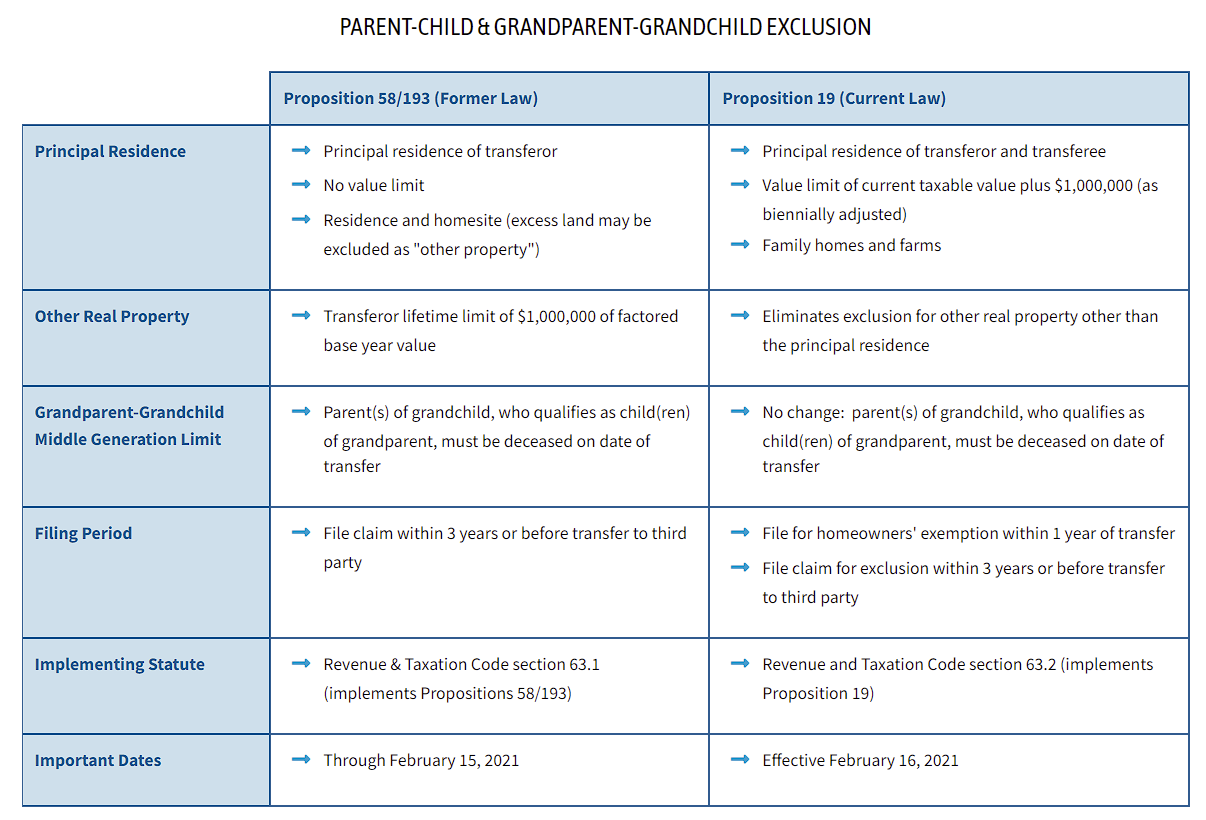
The California Proposition 19 Parent to Child Exclusion Chart
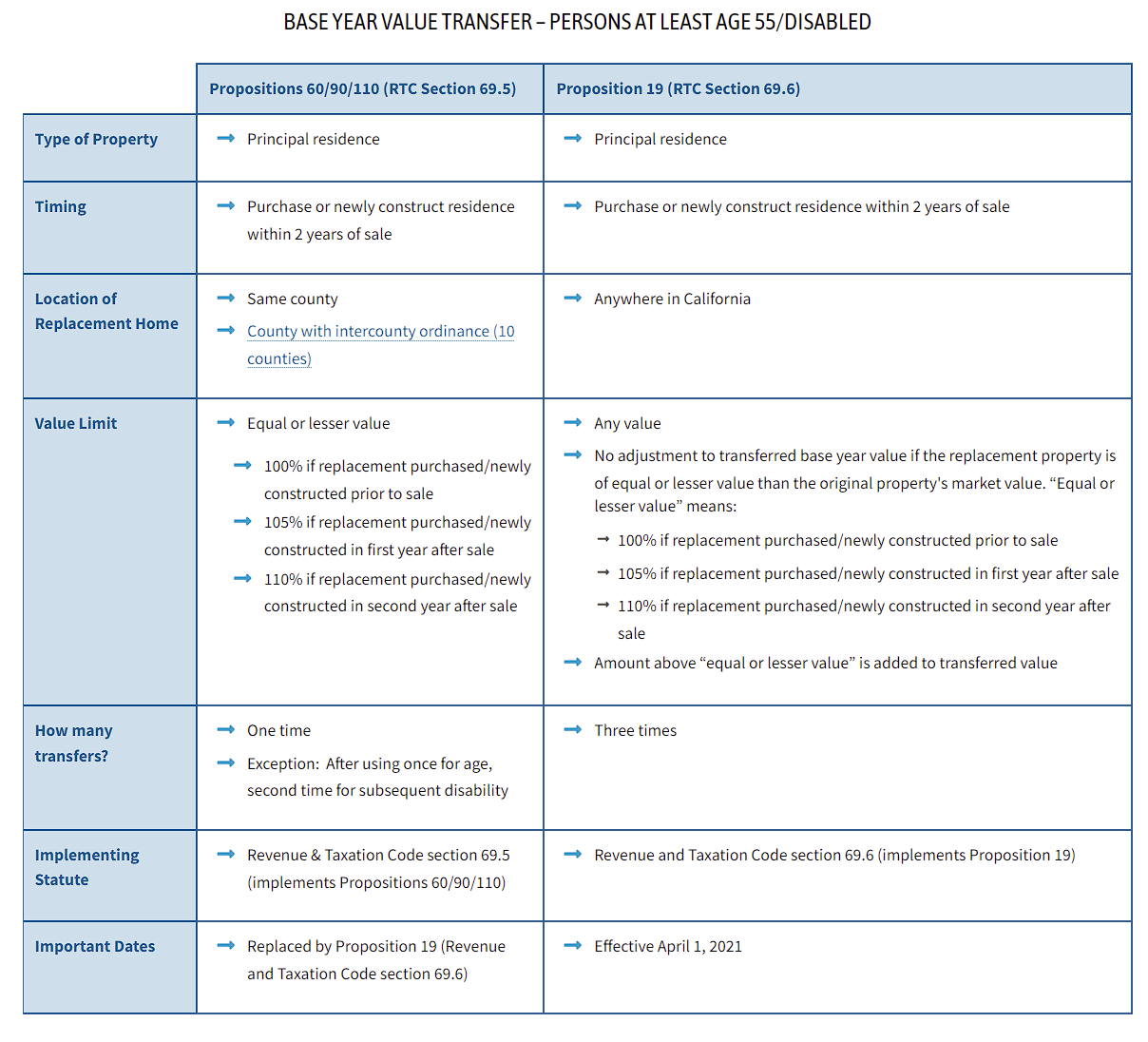
The Proposition 19 Base Year Value Transfer Chart
Assistance with the California Proposition 19 Parent to Child Transfer
Commercial Loan Corporation works with clients, Estate Attorneys and California Property Tax Consultants to help you qualify for a California Proposition 19 Parent to Child Transfer. We provide loans to Irrevocable Trusts and Probate that do not have sufficient cash assets. Our trust loan or probate loan allows for an equalized distribution to be made to all involved child beneficiaries without having a personal guarantee from the acquiring beneficiary.
If you require additional information on California Proposition 19 or if you are curious if you are eligible for the California Proposition 19 Parent to Child Transfer Benefit, we can assist you. We have helped hundreds of clients receive their benefit and save them over $6,500 per year in property taxes on average. Call us at 877-464-1066 and we will answer all of your questions. We can also provide you with a free benefit analysis and let you know how much you may be able to save in property taxes on an inherited home.
Additional California Proposition 19 Resources:
The full legislative information on California Proposition 19 – ACA-11 can be found here.
The California Proposition 19 Parent to Child Transfer Benefit Calculator

